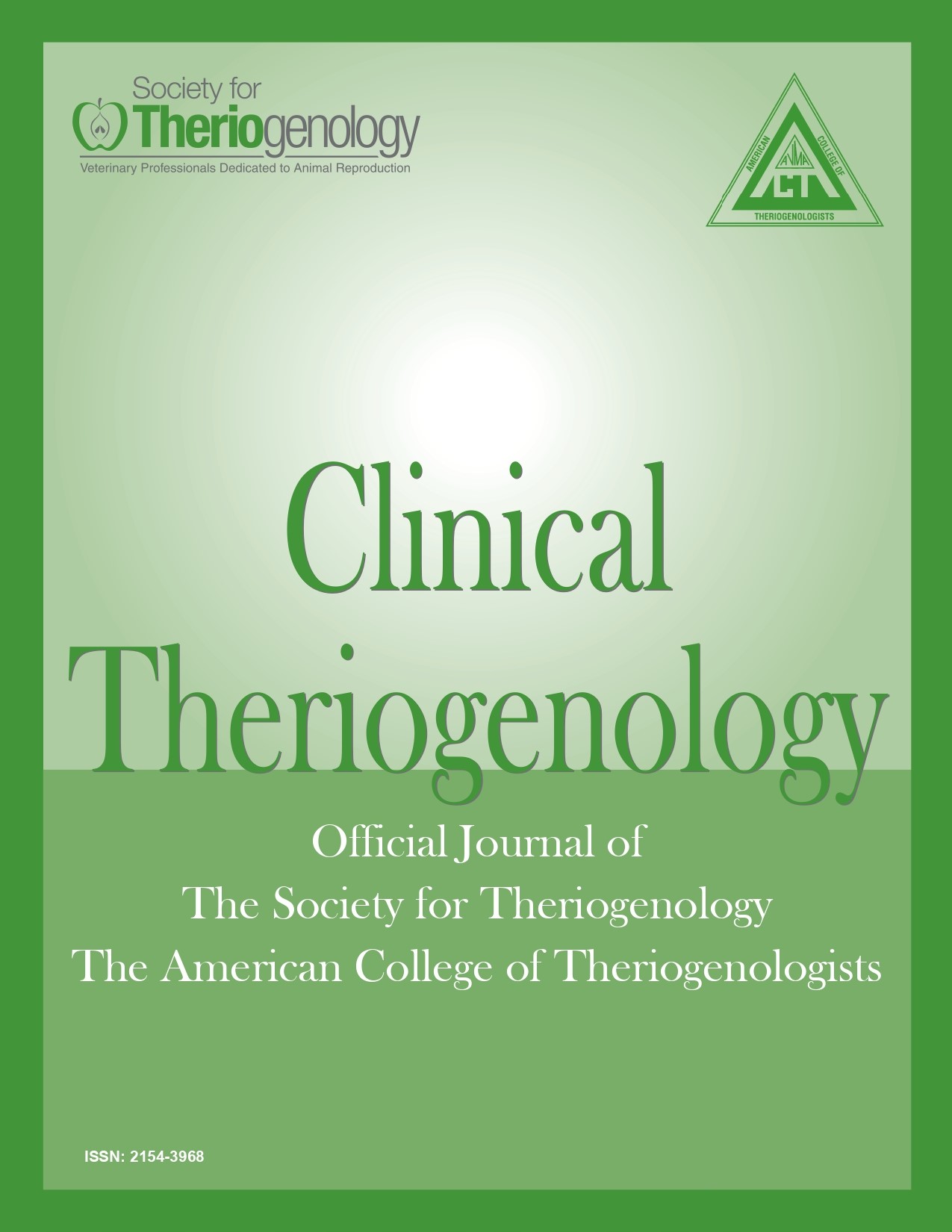Adenoviral-vectored gonadotropin releasing hormone vaccine for estrus suppression in mares
Abstract
Objective of this study was to evaluate an adenoviral-vectored gonadotropin releasing hormone vaccine’s ability to temporarily suppress reproductive cyclicity in mares. Five mares were vaccinated twice, 30 days apart and 5 mares served as unvaccinated controls. Following year, 4 vaccinated mares and 2 naïve mares (adjuvant controls) were given a gonadotropin releasing hormone peptide-adjuvant vaccine containing 100 μg of gonadotropin releasing hormone. Antibody responses, ovarian follicular dynamics and serum progesterone concentrations were determined during 2 ovulatory seasons. During first year, vaccinated mares developed gonadotropin releasing hormone antibodies (p < 0.05), but there was no significant effect on estrous cyclicity. During second year, antibody responses increased (p < 0.05), accompanied by suppression of estrous cyclicity (determined by progesterone concentrations and transrectal palpation and ultrasonography). Three of 4 treated mares returned to cyclicity between 154 and 326 days, whereas the fourth mare was still in anestrus at study completion. Adjuvant control mares developed a short-lived, minimal antibody response and cycled normally. In conclusion, mares developed an immune response to homologous immunization using an adenoviral-vectored gonadotropin releasing hormone vaccine. Additional heterologous vaccination with a gonadotropin releasing hormone peptide-adjuvant vaccine demonstrated establishment of immune memory and achieved estrus suppression.
Downloads

This work is licensed under a Creative Commons Attribution-NonCommercial 4.0 International License.
Authors retain copyright of their work, with first publication rights granted to Clinical Theriogenology. Read more about copyright and licensing here.





